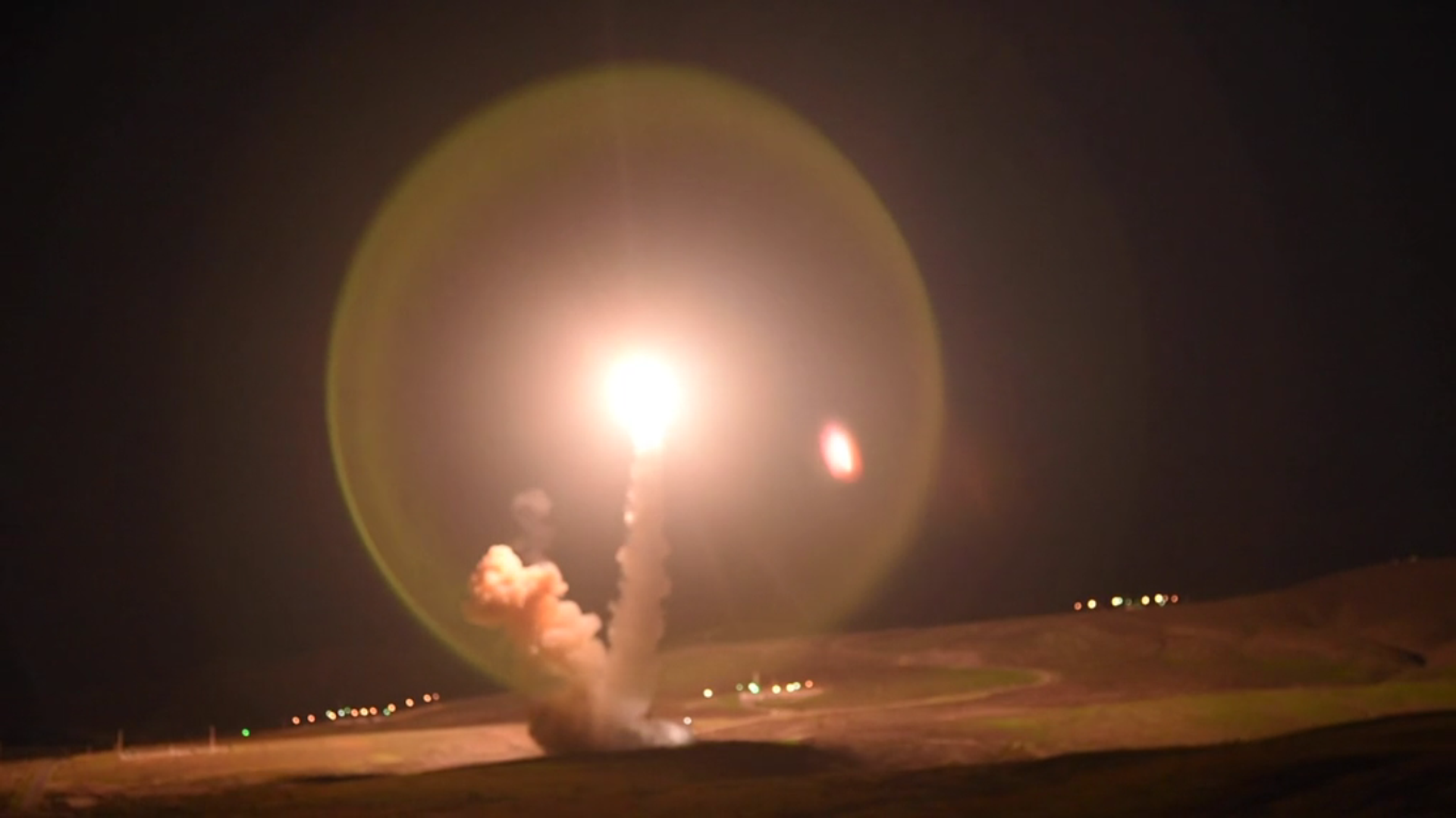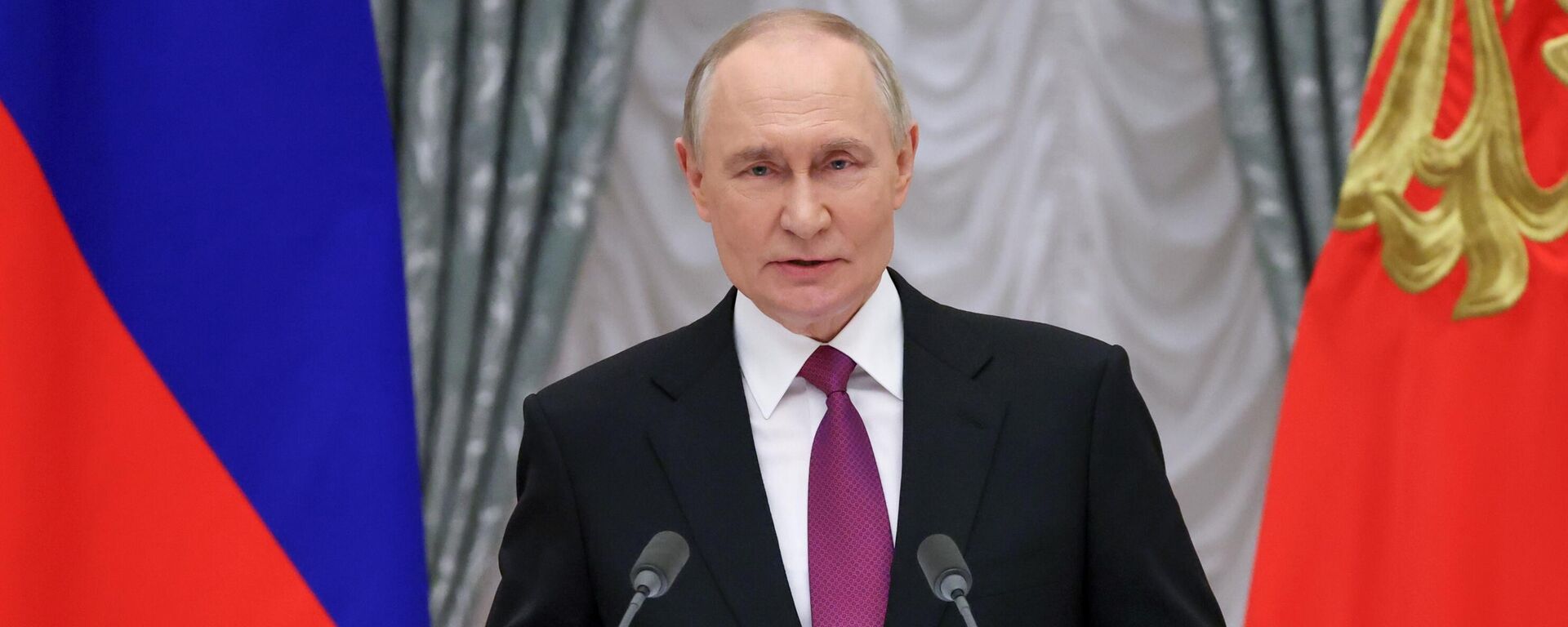https://sputniknews.in/20251106/minuteman-iii-test-looks-more-like-pr-for-us-public--allies---but-russia-would-respond-in-kind-10023784.html
Minuteman III Test Looks More Like PR for US Public - But Russia Would Respond in Kind
Minuteman III Test Looks More Like PR for US Public - But Russia Would Respond in Kind
Sputnik India
US President Donald Trump's statements on resuming the testing of nuclear weapons are a "trigger for a nuclear arms' race" and carry "grave implications" for global peace and stability, including in India's vicinity
2025-11-06T19:00+0530
2025-11-06T19:00+0530
2025-11-07T01:40+0530
sputnik opinion
donald trump
vladimir putin
asim munir
us
india
russia
pakistan army
ministry of external affairs (mea)
nato
https://cdn1.img.sputniknews.in/img/07e7/09/06/4083191_0:0:1366:768_1920x0_80_0_0_1361b2ef4445793121b8dc19621c660a.png
China, with the world’s third-largest nuclear arsenal, is rapidly catching up with the U.S., while Pakistan (≈165 warheads) holds slightly more than India, according to Stockholm International Peace and Research Institute (SIPRI).In August, speaking at an event in the US, Pakistani Army Chief Field Marshall Asim Munir declared that Pakistan would “take half the world with us” if threatened — remarks India’s Ministry of External Affairs (MEA) condemned as “nuclear sabre-rattling”, while regretting the fact that the comments were made from the soil of a "friendly third country".India maintains a nuclear triad, capable of delivering weapons by land, air, or sea."The spectre of a renewed nuclear arms race carries grave strategic implications for India, as much as it does for the rest of the world," says Sodhi, who's authored a recent book 'China's War Clouds: The Great Chinese Checkmate'.Both Asthana and Sodhi believe that Washington's messaging on resuming nuclear tests may be a message directed more at Russia and to a lesser degree at China."In his bid to stop the conflict [in Ukraine], President Trump hosted President Vladimir Putin in Alaska, enforced tariffs on India for the purchase of Russian oil and now imposed sanctions on Russian oil companies. So, he’s tried talks and economic instruments. None of them seem to have got the desired results for him," Asthana said."I don't believe that the US will test nuclear weapons and these threats have more to do with delivery systems, as demonstrated by the testing of Minuteman III ICBM this week. So, what I believe and hope is happening is that Washington is indulging in nuclear posturing or strategic military posturing at present," Asthana reckoned.In terms of nuclear warheads as counted under the New START, Russia possesses around 1,550 as compared to America's 1,419 operational warheads.He further remarked that even though the New START was set to expire in February 2026, it has remained in a suspended state, which means that there isn't a bar on testing of nukes by either of the powers."At the same time, China is known to be increasing its nuclear stockpile at a very fast rate, and could catch up with the U.S. in coming years, as stated by President Trump himself. Any renegotiation of an overarching nuclear arms-control treaty will have little meaning if China isn’t included in the discussions," Asthana explained.The US is no longer a match for the combined military strength of Russia and China:"I believe that Russia's ICBM programme is way ahead of the US, proven with the testing of the nuclear-powered and nuclear-armed Burevestnik missile. With a range of 14,000 kilometres, it indeed is unlike any other weapon possessed by any other military. On the other hand, the range of the Minuteman III ICBM tested by the US was around 4,200 kilometres," said Sodhi.
https://sputniknews.in/20251105/president-putin-calls-trumps-statement-about-nuclear-tests-serious-issue-10019460.html
us
india
russia
ukraine
south asia
indo-pacific
Sputnik India
feedback.hindi@sputniknews.com
+74956456601
MIA „Rossiya Segodnya“
2025
Sputnik India
feedback.hindi@sputniknews.com
+74956456601
MIA „Rossiya Segodnya“
News
en_IN
Sputnik India
feedback.hindi@sputniknews.com
+74956456601
MIA „Rossiya Segodnya“
Sputnik India
feedback.hindi@sputniknews.com
+74956456601
MIA „Rossiya Segodnya“
trump nuclear tests, trump nuclear war india pakistan, russian nuclear weapons, pakistan nuclear weapons, india nuclear weapons, minutemen 3 icbm, china nuclear weapons, new start treaty, ctbt, operation sindoor, trump india pakistan ceasefire, burevestnik icbm, poseidon, new start
trump nuclear tests, trump nuclear war india pakistan, russian nuclear weapons, pakistan nuclear weapons, india nuclear weapons, minutemen 3 icbm, china nuclear weapons, new start treaty, ctbt, operation sindoor, trump india pakistan ceasefire, burevestnik icbm, poseidon, new start
Minuteman III Test Looks More Like PR for US Public - But Russia Would Respond in Kind
19:00 06.11.2025 (Updated: 01:40 07.11.2025) Following US President Donald Trump’s announcement on resuming nuclear testing, the US Air Force launched a Minuteman III ICBM on Wednesday, calling it a “cornerstone of national defense.” Experts told Sputnik India the US statements could trigger a new nuclear arms race — including in India’s neighbourhood.
"These statements are definitely a trigger for a nuclear arms race as well as developing technologically superior delivery systems. For a country like China, seeing these nuclear threats, it wouldn’t like to be intimidated by Washington and would therefore aim to develop its own stockpile on par with the United States," remarked Major General (retired) Shashi Bhushan Asthana, Director at the United Service Institution (USI) of India.
China, with the world’s third-largest nuclear arsenal, is rapidly catching up with the U.S., while Pakistan (≈165 warheads) holds slightly more than India, according to Stockholm International Peace and Research Institute (SIPRI).
Asthana also opined that Pakistan's military leadership, emboldened by the "reset" in ties with the US, may take "cues" from President Trump's statements on nuclear weapons, especially amid tensions following Operation Sindoor.
In August, speaking at an event in the US,
Pakistani Army Chief Field Marshall Asim Munir declared that Pakistan would “take half the world with us” if threatened — remarks India’s
Ministry of External Affairs (MEA) condemned as “
nuclear sabre-rattling”, while regretting the fact that the comments were made from the
soil of a "friendly third country".
"As far as India is concerned, we have proven during Operation Sindoor that a ground exists for a military action short of a fully-blown conventional war in a nuclear hangover... if US statements prompt Pakistan to ramp up its nuclear programme, then India would have no choice but to bolster its own nuclear stockpile and maybe even re-assess its No-First Use (NFU) policy," believes Asthana.
India maintains a nuclear triad, capable of delivering weapons by land, air, or sea.
Military analyst and author Lieutenant Colonel (Retd.) JS Sodhi tells Sputnik India, "While India adheres to a no first-use policy, a strict nuclear non-proliferation regime and remains committed to a peaceful nuclear programme, India does face the real threat of a two-front war."
"The spectre of a renewed nuclear arms race carries grave strategic implications for India, as much as it does for the rest of the world," says Sodhi, who's authored a recent book 'China's War Clouds: The Great Chinese Checkmate'.
"Should the US President move back from his commitments under the New START, Comprehensive Test Ban Treaty (CTBT) (the US has signed but not ratified it) and the Nuclear Non-Proliferation Treaty (NPT), then we may witness a global nuclear arms race," Sodhi prophesised.
Both Asthana and Sodhi believe that Washington's messaging on resuming nuclear tests may be a message directed more at Russia and to a lesser degree at China.
"In his bid to stop the conflict [in Ukraine], President Trump hosted President Vladimir Putin in Alaska, enforced tariffs on India for the purchase of Russian oil and now imposed sanctions on Russian oil companies. So, he’s tried talks and economic instruments. None of them seem to have got the desired results for him," Asthana said.
He described Washington's actions as "nuclear brinkmanship".
"I don't believe that the US will test nuclear weapons and these threats have more to do with delivery systems, as demonstrated by the testing of Minuteman III ICBM this week. So, what I believe and hope is happening is that Washington is indulging in nuclear posturing or strategic military posturing at present," Asthana reckoned.
US nuclear threats weren't going to work with Russia, with President Putin already telling a Security Council Meeting at the Kremlin on Wednesday that Moscow would take "appropriate retaliatory measures" in case the US began its nuclear testing.
"Russia has a much bigger nuclear arsenal than the US, and if the Trump administration indeed carries out its threat of testing more nukes, then Russia in all likelihood would further bolster its nuclear arsenal and advance its delivery systems... Russia won’t hesitate to take countermeasures if its existence is threatened or if it is threatened by such nuclear sabre-rattling. But, if the US doesn’t test nuclear weapons, Russia won’t do it either," the Indian veteran-cum-thinktanker said.
In terms of nuclear warheads as counted under the New START, Russia possesses around 1,550 as compared to America's 1,419 operational warheads.
He further remarked that even though the New START was set to expire in February 2026, it has remained in a suspended state, which means that there isn't a bar on testing of nukes by either of the powers.
"At the same time, China is known to be increasing its nuclear stockpile at a very fast rate, and could catch up with the U.S. in coming years, as stated by President Trump himself. Any renegotiation of an overarching nuclear arms-control treaty will have little meaning if China isn’t included in the discussions," Asthana explained.
Sodhi views President Trump's nuclear threats as a means to reassure his domestic constituency and NATO allies that the US remained the pre-eminent global power.
"As we are seeing, many analysts have given an upper hand to President Xi after the Busan meeting, in light of managing to get China's tariffs cut by 10% and relaxation of export controls on US tech exports. We also saw Russia testing its Burevestnik missile as well as nuclear-powered Poseidon, being viewed as more powerful than a nuclear missile."
The US is no longer a match for the combined military strength of Russia and China:
"I believe that Russia's ICBM programme is way ahead of the US, proven with the testing of the nuclear-powered and nuclear-armed
Burevestnik missile. With a range of 14,000 kilometres, it indeed is unlike any other weapon possessed by any other military. On the other hand, the range of the Minuteman III ICBM tested by the US was around 4,200 kilometres," said Sodhi.
"President Putin's message is clear: if the US does resume nuclear testing despite assurances of beginning a denuclearisation dialogue involving the US, Russia and China, then Russians would respond in kind," the Indian Army veteran concluded.


